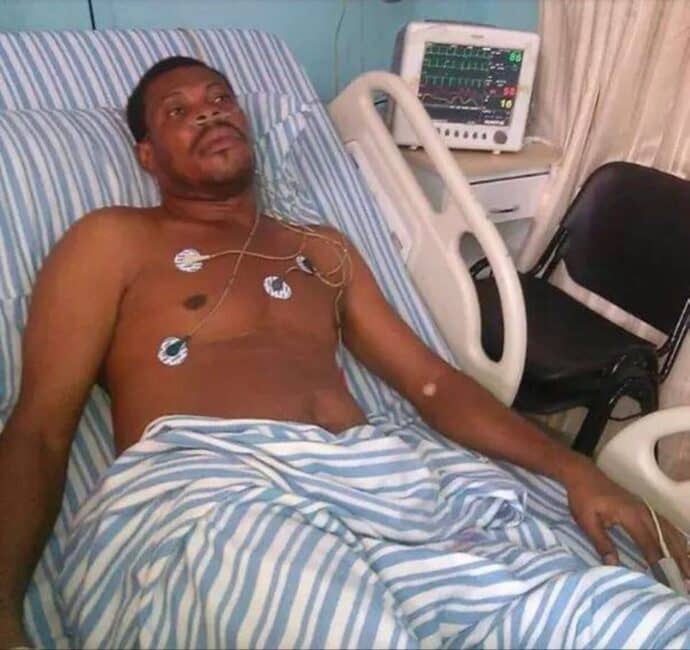The Okyenhene, Osagyefuo Amoatia Ofori Panin, has urged young people across the world to raise their voices against climate injustice to help mitigate the devastating impact of global warming on poor and vulnerable countries.
He said it was time young people who had the knowledge, technology, and moral imperative amplified their voices to promote environmental justice to make the world safer and equitable.
In his view, big industrialized economies released chunks of fumes and carbon into the atmosphere, yet Africa, which contributed the least carbon, suffered the most from climate impact.
He quoted, for instance, a March 2020 CDP Africa Report that said Africa accounted for the smallest share of global greenhouse gas emissions at just 3.8 percent in contrast to 23 percent in China, 19 percent in the US, and 13 percent in the European Union.
“Yet, the people who have done the least to contribute to the problem are the most affected,” he said.
Sadness
Addressing faculty members and students of the Worcester Polytechnic Institute (WPI), Worcester Massachusetts, USA, last Saturday, the
Okyenhene said: “We release just micro cents of carbon, yet we are affected more as gravely as the West.
It saddens my heart.
“So as the world battles with the crisis of climate challenges, Africa is battling with the most intractable problem confronting humanity — climate change and poverty,” he said.
The Okyenhene, a renowned environmentalist, was invited by the WPI to share his perspectives on climate change, environmental sciences, and sustainability with the faculty members and students of the institute.
Rising to occasion
Speaking on the topic: “Climate Change Action: The Longer We Wait, the Shorter Our Lives Become,” the Okyenhene said climate change was not a problem young people could afford to ignore or delay in addressing any longer.
He therefore urged them to raise their voices against climate injustice, particularly against poor countries.
“The longer we wait, the shorter our lives become and the more challenging it will be to mitigate the worst impacts of climate change,” he said.
“The various forms of hurricanes, floods, wildfires, droughts, tsunamis and tornadoes happening across the globe is enough for us to rise to the occasion,” he said.
He added: “Let us rise to the challenge for the sake of our health, our food and water supply, our biodiversity, our economies, our social equality, our geopolitical stability, our cultural heritage, and the very future of our planet”.
No more silence
The Okyenhene said as future leaders, young people owed it to themselves future generations, and the countless species that shared our planet to take decisive action now.
Urging them to leverage the knowledge they had, he said, young people must equally demonstrate what he called “a willing commitment to help build a sustainable and equitable future.”
“We are not going to be silent and passive before injustice.
Our voice may be a lonely voice, misunderstood, unpopular, rejected, but we will speak because it is a voice of reason and compassion,” he said.
Quoting Greta Thunberg, a young Swedish climate activist, the Okyenhene asked the students of Worcester Polytechnic Institute: “Will we be the architects of positive change or the eyewitnesses to a deteriorating planet?”
To be architects of positive change, Osagyefuo Amoatia Ofori Panin urged the students to amplify their voices and share the message just like Anna, another climate activist.
“Anna is a medical student and a member of the Health Students for a Healthy Climate, an inter-professional non-profit organization based in Minnesota.
“She and her colleagues are doing amazing things with their advocacy.
They promote environmental justice. You, too, can join this cause,” he said.
He reminded them of an award scheme dubbed “Young Champions of the Earth”, which the United Nations had instituted for young people to help tackle climate change head-on.
Commendation
He commended all young environmentalists and climate change advocates such as Greta Thunberg, Hannah Alper, Matilde Alvim, Joshua Amponsem, Zanagee Artis, Isabelle Axelsson, Aliza Ayaz, Vic Barrett, Xiye Bastida, among others.
“Give us hope for the future.
It has fallen to us, leaders, to act for the young ones to continue to follow.
“The impact of climate change on poverty is profound.
We have to rise and act to save our planet and protect the health of those without wealth, in particular,” he said.
Accomplishments
Highlighting steps to improve forest cover in the Akyem Abuakwa Traditional Area for the past 23 years, the Okyenhene said 52 percent (54,845 ha) of the over 105,472 hectares had been covered and declared protected areas.
He attributed such accomplishment to the adoption of what he called “sustainable pathways created by our ancestors”.
Credit: Graphic Online







